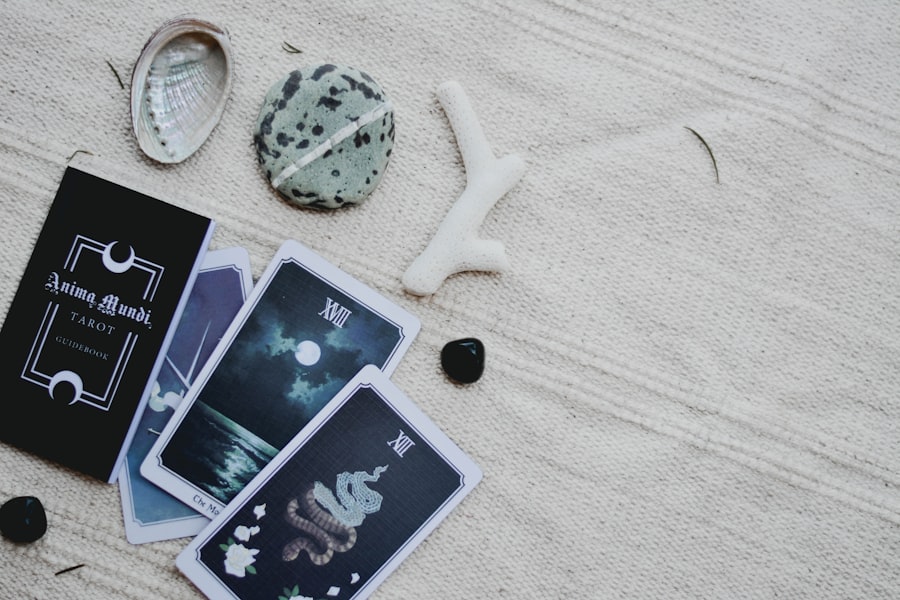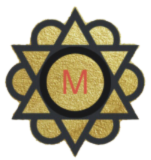
Anxiety is a complex emotional response characterized by feelings of unease, worry, and fear. It can manifest in various forms, from generalized anxiety disorder (GAD) to panic attacks, social anxiety, and specific phobias. The physiological effects of anxiety are equally profound; individuals may experience increased heart rates, sweating, trembling, and even gastrointestinal disturbances.
These symptoms can significantly impair daily functioning, affecting personal relationships, work performance, and overall quality of life. The prevalence of anxiety disorders is staggering, with the World Health Organization estimating that over 264 million people worldwide are affected.
The impact of anxiety extends beyond the individual, influencing social dynamics and community well-being. Those suffering from anxiety may withdraw from social interactions, leading to isolation and loneliness. This withdrawal can create a vicious cycle where the lack of social support exacerbates feelings of anxiety.
Furthermore, anxiety can lead to physical health issues, such as chronic stress-related conditions, which can further complicate an individual’s mental health landscape. Understanding the multifaceted nature of anxiety is crucial for developing effective strategies to manage it, as it allows for a more comprehensive approach that addresses both psychological and physiological aspects.
Key Takeaways
- Anxiety is a common mental health issue that can have a significant impact on daily life and well-being.
- Tarot cards can provide a sense of guidance and reassurance, offering a different perspective on anxiety and its triggers.
- Incorporating tarot into your daily routine, such as through a morning or evening reading, can help alleviate anxiety and promote a sense of calm.
- Choosing the right tarot spread, such as a simple three-card spread or a more complex Celtic Cross spread, can help address specific aspects of anxiety.
- Tarot can be used as a tool to explore and address the root causes of anxiety, providing insight and potential paths for healing and growth.
- While tarot can be a helpful tool for self-reflection, seeking professional guidance and support from a therapist or counselor is important for addressing and managing anxiety effectively.
How Tarot Cards Can Help Alleviate Anxiety
Tarot cards have long been associated with divination and self-reflection, but their potential as a tool for alleviating anxiety is gaining recognition in contemporary wellness practices. The act of engaging with tarot can serve as a form of mindfulness, drawing individuals into the present moment and away from spiraling thoughts that often accompany anxiety. Each card in a tarot deck carries its own symbolism and meaning, providing a rich tapestry for exploration and introspection.
When individuals engage with tarot, they are invited to reflect on their current emotional state, fears, and aspirations, which can foster a sense of clarity and understanding. Moreover, tarot can facilitate a dialogue between the conscious and subconscious mind. The imagery and narratives within the cards can evoke emotions and insights that may not be readily accessible through traditional cognitive approaches.
For instance, drawing the “Nine of Swords,” often associated with nightmares and anxiety, can prompt an individual to confront their fears directly rather than avoiding them. This confrontation can be cathartic, allowing for the release of pent-up emotions and the identification of specific triggers that contribute to anxiety. By externalizing internal struggles through the lens of tarot, individuals may find it easier to process their feelings and develop coping strategies.
Incorporating Tarot into Your Daily Routine for Anxiety Relief

Integrating tarot into a daily routine can create a structured yet flexible approach to managing anxiety. One effective method is to set aside a specific time each day for a brief tarot session. This could involve drawing a single card in the morning to set intentions for the day or reflecting on a particular question or concern.
By establishing this ritual, individuals create a dedicated space for self-reflection and emotional processing, which can be particularly beneficial during times of heightened anxiety. In addition to daily card draws, journaling about the insights gained from tarot readings can enhance the therapeutic benefits. Writing down thoughts and feelings associated with each card can help solidify understanding and provide a reference point for future reflections.
This practice not only encourages mindfulness but also allows individuals to track their emotional progress over time. For example, if someone consistently draws cards related to self-doubt or fear, they may recognize patterns in their thinking that need addressing. By documenting these experiences, individuals can cultivate greater self-awareness and develop more effective coping strategies tailored to their unique emotional landscape.
Choosing the Right Tarot Spread for Anxiety
Selecting an appropriate tarot spread is essential for maximizing the benefits of tarot in addressing anxiety. A tarot spread refers to the layout of cards drawn during a reading, each position representing different aspects of the inquiry at hand. For those dealing with anxiety, specific spreads can provide targeted insights into their emotional state and potential pathways toward relief.
One popular spread for this purpose is the three-card spread, which typically explores the past, present, and future related to a particular issue. In this context, the first card might represent past experiences that have contributed to current anxiety levels, while the second card reflects present feelings or situations causing distress. The third card can offer guidance or potential outcomes if one chooses to confront these issues head-on.
This straightforward approach allows individuals to gain clarity on their emotional journey while also providing actionable insights for moving forward. Additionally, more complex spreads like the Celtic Cross can delve deeper into underlying factors contributing to anxiety, offering a comprehensive view of one’s mental landscape.
Using Tarot to Explore and Address Root Causes of Anxiety
One of the most profound ways tarot can assist in managing anxiety is by facilitating exploration of its root causes. Often, anxiety is not merely a response to current stressors but is deeply intertwined with past experiences, traumas, or unresolved emotions. Tarot serves as a mirror reflecting these hidden aspects of the psyche.
By engaging with specific cards that resonate with personal experiences—such as The Tower representing upheaval or The Moon symbolizing fear and illusion—individuals can begin to unravel the complexities of their emotional responses. For instance, drawing The Devil card may prompt an individual to confront feelings of entrapment or addiction that contribute to their anxiety. This exploration can lead to significant breakthroughs in understanding how past traumas or unhealthy patterns influence present behavior.
By acknowledging these root causes through tarot readings, individuals are empowered to take proactive steps toward healing. This might involve seeking therapy, developing healthier coping mechanisms, or simply allowing oneself to feel and process difficult emotions without judgment.
Seeking Professional Guidance and Support for Anxiety with Tarot

While tarot can be a powerful tool for self-exploration and anxiety management, it is essential to recognize its limitations and the importance of professional guidance in addressing mental health issues comprehensively. Mental health professionals can provide evidence-based therapies that complement the insights gained from tarot readings. For instance, cognitive-behavioral therapy (CBT) can help individuals reframe negative thought patterns identified during tarot sessions, creating a more holistic approach to managing anxiety.
Additionally, some therapists incorporate alternative modalities like tarot into their practice as a means of enhancing client engagement and self-discovery. This integrative approach allows clients to explore their emotions through both traditional therapeutic techniques and creative tools like tarot. By working collaboratively with a mental health professional who understands the nuances of both therapy and tarot, individuals can create a personalized plan that addresses their unique needs while fostering emotional resilience.
In conclusion, while tarot offers valuable insights into managing anxiety through self-reflection and exploration of root causes, it should be viewed as one component within a broader framework of mental health care. Combining tarot with professional support creates a synergistic effect that empowers individuals to navigate their emotional landscapes more effectively while fostering long-term healing and growth.
If you are interested in exploring the power of numerology in addition to tarot, you may want to check out The Power and Influence of Numerology Number 8.
By combining insights from both tarot and numerology, you can gain a deeper understanding of yourself and find new ways to navigate anxiety and find calm.
FAQs
What is tarot?
Tarot is a form of divination that uses a deck of cards to gain insight into past, present, and future events, as well as to find guidance and advice.
How can tarot help with anxiety?
Tarot can help with anxiety by providing a tool for self-reflection, insight, and guidance. It can offer a different perspective on a situation and help individuals find calm and clarity.
Is tarot a form of therapy for anxiety?
Tarot is not a replacement for professional therapy or treatment for anxiety. It can be used as a complementary tool for self-reflection and personal growth.
How can someone use tarot for anxiety?
Individuals can use tarot for anxiety by pulling cards related to their current feelings or concerns, and then reflecting on the meanings and messages of the cards to gain insight and find calm.
Are there specific tarot cards that are helpful for anxiety?
While any tarot card can offer insight and guidance, some cards are often associated with calming and soothing energies, such as The Star, The Moon, and The Empress.
Is tarot associated with any specific religion or belief system?
Tarot is not tied to any specific religion or belief system. It has been used by people from various spiritual and cultural backgrounds for centuries.






